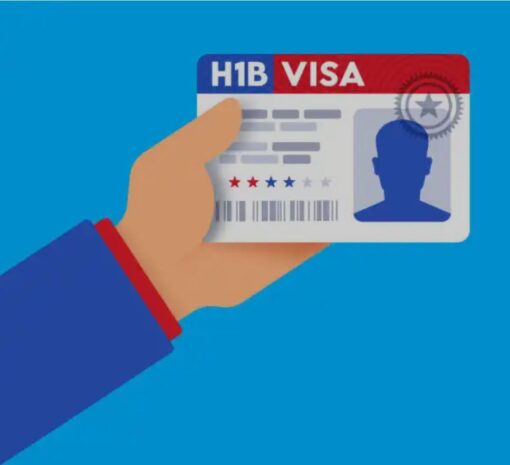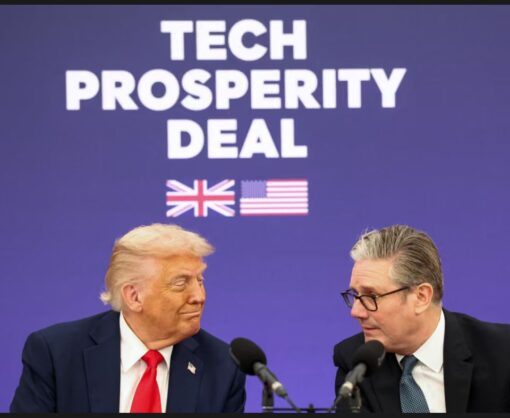The UK government is weighing proposals to reduce or entirely eliminate visa fees for highly skilled foreign professionals—namely scientists, academics, engineers, and digital experts—in a bid to enhance competitiveness and attract global talent.
The move comes as the United States, under President Donald Trump, dramatically raises fees for its H-1B visa program. The contrasting approaches underscore mounting competition between the UK and US to host the world’s most sought-after talent.
Prime Minister Keir Starmer’s administration has set up a “global talent task force,” headed by business adviser Varun Chandra and science minister Patrick Vallance, to explore ways of making the UK more appealing to elite international talent.
One of the ideas under consideration is scrapping visa application fees for those with exceptional credentials, such as graduates from top global universities or recipients of prestigious awards.
At present, a Global Talent visa in the UK costs around £766 for the application itself, in addition to a £1,035 annual health surcharge. Dependent visas add further charges. Critics argue that although UK fees are lower than many comparable Western countries, they still present a barrier to skilled individuals considering relocation.
The debate over UK visa fee cuts for highly skilled professionals comes just months after the government raised many immigration-related charges.

In April 2025, the Certificate of Sponsorship fee for Skilled Workers doubled from roughly £239 to £525, while other application fees in labour and business mobility routes rose by around 5 to 10 percent.
Officials insist those increases were necessary to fund the immigration system, but ministers are now considering whether exemptions for top-tier talent could help boost competitiveness.
While the UK is exploring incentives, President Trump’s government is pursuing the opposite path. Washington has introduced a $100,000 application fee for new H-1B visa petitions, a dramatic hike designed to push employers to hire more American workers.
The measure is expected to generate roughly $14 billion annually from companies that rely on skilled foreign labour. For major firms in technology and healthcare, however, the change represents a heavy burden. Critics warn that it could discourage international talent from seeking opportunities in the US and force firms to shift recruitment elsewhere.
The fee hike has also sparked international concern. India, whose citizens make up a significant share of H-1B holders, has warned of serious consequences for families, businesses, and cross-border research partnerships.
Diplomats have suggested the change could damage the US’s long-term competitiveness, especially at a time when countries such as the UK are trying to present themselves as more welcoming destinations for innovators and entrepreneurs.
For Britain, the strategy is not just about compassion but about economic positioning. With the US raising barriers, the UK sees an opportunity to promote itself as a destination that values and facilitates the arrival of world-class professionals.
Highly skilled migrants tend to deliver outsized contributions to research, business creation, tax revenue, and innovation. Lowering costs could therefore bring net economic benefits that outweigh the loss of immediate visa fee income.
Officials argue that a more open system could help fill critical shortages in digital technology, biotech, advanced manufacturing, and higher education, enhancing the UK’s standing in global markets.
Yet the plan is not without risks. Waiving or slashing fees would reduce Treasury revenues, at least in the short term, and ministers would need to weigh long-term growth against budgetary constraints.
There is also the question of public perception. Immigration remains a sensitive subject in British politics, and any move that looks like favouring foreign workers over struggling domestic households could provoke backlash.
Policymakers are therefore considering selective eligibility criteria, such as restricting exemptions to prize winners, top university graduates, or world-class researchers in strategically important sectors.
The practicalities of implementation are also under review. Officials are examining how to define “top global talent,” how to prevent abuse of the system, and how to maintain efficient processing without causing backlogs.
Adjustments may require new legislation or statutory changes, since many visa fees are set in law. Behind the scenes, Treasury officials are modelling the potential economic impact, comparing lost fee revenues against projected tax receipts and business activity from an inflow of elite professionals.
For prospective migrants, the divergence between the US and UK has immediate implications. Skilled workers once drawn to Silicon Valley may now consider London, Cambridge, or Manchester as alternatives.
Employers, especially in research and technology, stand to save significant sums in recruitment and relocation budgets if the UK pushes forward with fee waivers. Universities and scientific institutions may find themselves in a stronger position to lure leading scholars, while start-ups could benefit from a deeper talent pool.
The difference in approach between London and Washington is stark. While Britain considers easing costs or even eliminating them for top-tier applicants, the US is imposing the heaviest fee in the history of its immigration system.
The $100,000 H-1B charge is designed to reduce demand and generate revenue, while the UK proposal would reduce obstacles and stimulate inflows of expertise. Observers say the result could be a realignment of global talent flows, with Britain benefiting from America’s tougher stance.
Government insiders say the decision on whether to proceed could be tied to the autumn budget, expected in late November 2025. Until then, both businesses and prospective migrants will be watching closely.

Analysts warn that hesitation or half-measures could blunt the policy’s impact, while a bold announcement might quickly shift perceptions of the UK as an emerging hub for global innovators.
The debate illustrates how visa fees, once seen as technical administrative costs, have become powerful levers of national competitiveness.
As the global race for talent intensifies, countries are increasingly using immigration systems to project their economic strategies. For the United States, the new H-1B charges represent protectionism and revenue generation.
For the UK, proposed visa fee cuts for highly skilled applicants signal a desire to embrace openness and economic growth. The outcome will shape not just migration flows but also the balance of global innovation in the years ahead.


